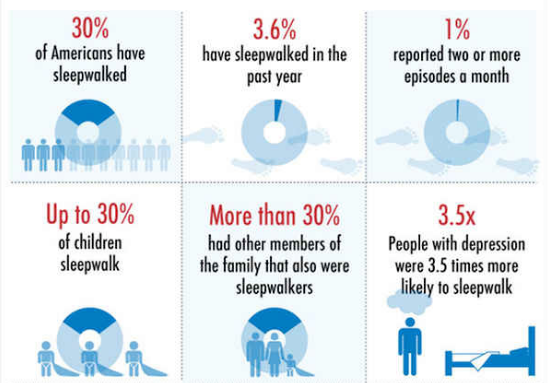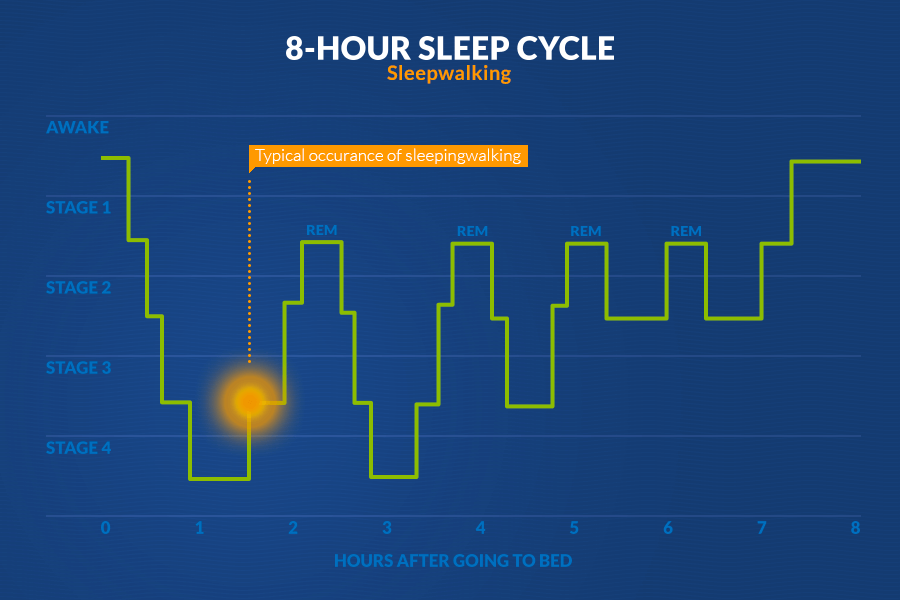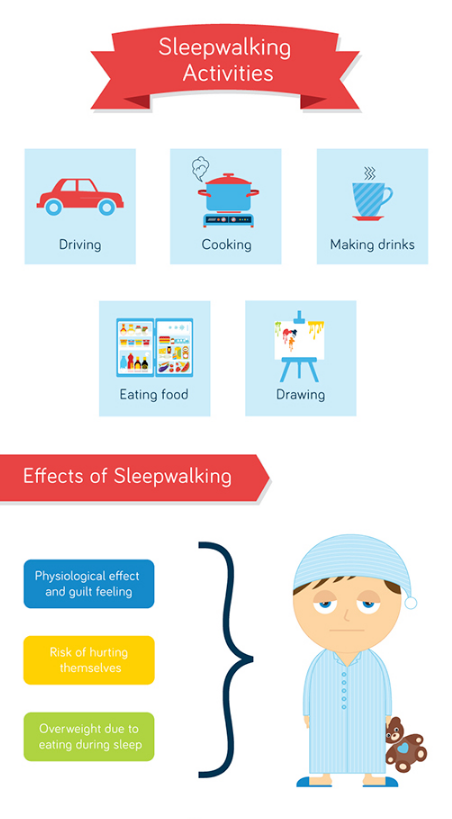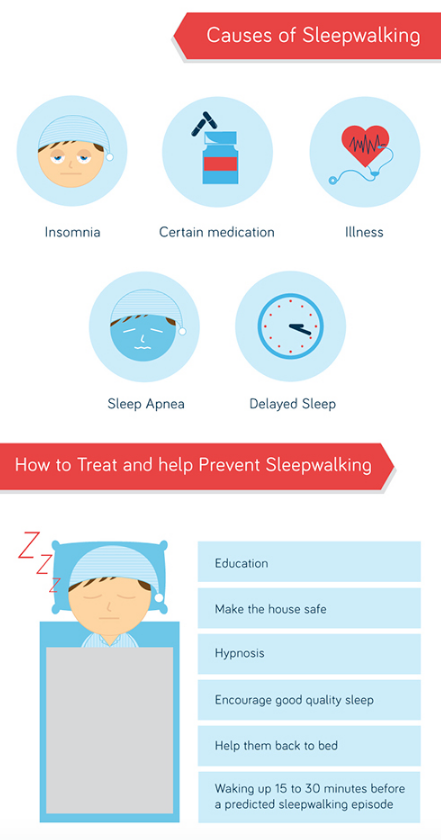
Have you ever sleepwalked before?
Sleepwalking, or scientifically called somnambulism, is a sleeping disorder where people walk around and execute daily tasks - while totally unconscious and in a deep sleep mode.
Sleepwalking can become quite dangerous if people start using sharp objects, leaving the house, climbing through the windows, or even driving a car (yes, all of this has happened before!)
And strangely, when the person wakes up they don't even remember anything.
Unless of course they wake up in a different place than their bed, then they'll just be confused but still have no memory of how they got there!
So why does sleepwalking occur, who does it affect, and how should you treat it?

Details about Sleepwalking
Sleepwalking is more common than you'd assume.
Studies suggest that about 5% of adults experience signs of sleepwalking regularly, and even up to 30% of kids and teenagers.
And let's clear up the myth that sleepwalkers are acting out their dreams - that's not true!
Sleewalking generally occurs during the first third of our sleep.
During that time, we are in a phase of deep sleep - these are the sleep phases 3 and 4.
Our brain is in a very deep slumber during these stages, and shows very slow activity.
Dreaming however occurs during REM (Rapid Eye Movement) Sleep. During that phase, our brain is a lot more active.
Also, during REM sleep our muscles are actually paralyzed - to stop us from moving in our dreams.

What could happen during Sleepwalking?
In most cases, people who sleepwalk just walk around the house. They...
- Walk towards a source of light
- Might try to eat a snack or even cook something to eat
- Execute irrational actions like climbing over furniture or out the window
- Do things that seem to be without sense (for example moving furniture, looking for something, or trying to use an object for something that it's not been made for - for example trying to use a book as a remote)
- Talk, mumble or shout
- Execute daily actions like household chores
In rare occasions, sleepwalking might even go as far as ...
- Trying to open doors and windows
- Leaving the house
- Driving a car
- Visiting someone else

Should you wake up someone that's Sleepwalking?
Yes!
It's a common myth that yo should never wake up a sleepwalker, or else they might experience a shock or get aggressive.
You should definitely try to wake up the sleepwalker very gently by touching their shoulders, and speaking to them softly.
It might take a few seconds until you can fully wake them up.
Prepare yourself that they will be very confused, and that you will have to explain the situation.
It's best to explain briefly and guide them back to bed - they will fall asleep and wake up without any memory of the event.
Then, you can explain everything in detail the next morning.

Why do people Sleepwalk?
Well, the real reason is still a mystery - but scientists have come up with many different theories to explain the phenomenon of Sleepwalking.
Generally, sleepwalking is a sleeping disorder that's affected by arousal - something triggers the brain to suddenly go from sleeping to waking - but the sleepwalker gets stuck in between.
It's suggested that the brain wants to go straight from a deep sleep phase to waking up, instead of finishing the sleep cycles normally.
Like I have mentioned above, sleepwalking mostly affects kids and teenagers.
Scientists think that this might be the key factor that triggers this behaviour: Since kids brains are not totally matured yet, not all functions and processes are fully developed.
So while normally, adults are paralyzed during deep sleep due to the neurotransmitter GABA, kids might not experience this - so nothing inhibits them from walking around while sleeping.
Growth hormones could also be linked to this, especially since sleepwalking often affects teenagers as well.
Most people lose their sleepwalking habits once they become an adult - only about 1% of the population sticks with the phenomenon.
If someone experiences sleepwalking for the first time as an adult, this might be a serious side effect from medication, or even the first signs for a brain disease.
The reasons for sleepwalking are not fully researched yet. Have you ever sleepwalked? Or did you have an experience while somebody else was sleepwalking? Please share your story in the comments!
Images: 1, 2, 3, 4, 5, Sources: 1, 2, 3
- Instagram -

Sirwinchester
